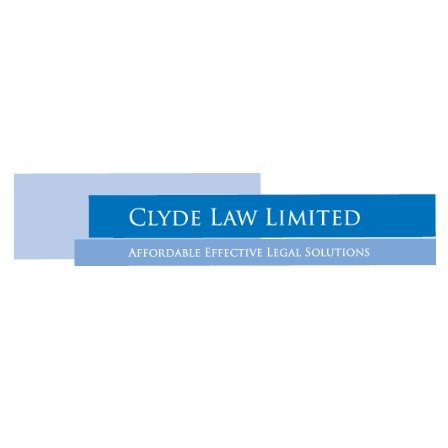Best Structured Finance Lawyers in Hamilton
Share your needs with us, get contacted by law firms.
Free. Takes 2 min.
List of the best lawyers in Hamilton, New Zealand
About Structured Finance Law in Hamilton, New Zealand
Structured finance is a specialized field within finance and law that involves creating complex financial instruments to meet unique funding needs. In Hamilton, New Zealand, structured finance transactions are prevalent in commercial sectors such as real estate, agriculture, and corporate finance. These arrangements often include securitization, syndicated loans, asset-backed securities, collateralized debt obligations, and other custom solutions that help businesses manage risk, improve liquidity, and access capital markets more efficiently. Legal oversight in structured finance is vital because these transactions usually involve multiple parties, significant sums, and intricate legal agreements requiring compliance with both local and international regulations.
Why You May Need a Lawyer
Engaging a lawyer with experience in structured finance is crucial for several reasons. You may require legal assistance if you are:
- Setting up or participating in a securitization transaction
- Negotiating a syndicated loan or multi-party credit arrangement
- Structuring a real estate or project finance deal
- Acquiring or disposing of asset-backed securities
- Complying with banking, corporate, and securities laws
- Faced with a dispute or potential litigation about structured finance instruments
- Requiring legal opinions or due diligence for investors or lenders
- Ensuring documentation and structures are tax-efficient and compliant
Local Laws Overview
In Hamilton, structured finance is governed by a framework of New Zealand laws and regulations. Key aspects include:
- Companies Act 1993: Regulates company structures, director obligations, and corporate powers that underpin structured finance deals.
- Financial Markets Conduct Act 2013: Oversees the offer, sale, and regulation of financial products and securities, including disclosure requirements for complex instruments.
- Personal Property Securities Act 1999: Governs registration and priority of security interests in personal property, which is essential in asset-backed transactions.
- Insolvency laws: Play a role in managing risks related to the potential insolvency of parties involved in a transaction.
- Taxation legislation: Important for structuring transactions in a way that is tax efficient while complying with Inland Revenue rules.
- Reserve Bank of New Zealand guidelines: Relevant for banks and non-bank deposit takers participating in structured finance arrangements.
Frequently Asked Questions
What is structured finance?
Structured finance refers to financial instruments or transactions that are complex in nature, involving pooling assets, transferring risks, and often multiple parties, to achieve tailored funding solutions.
What types of assets can be securitized in New Zealand?
Common assets include mortgages, car loans, commercial receivables, leases, and sometimes agricultural assets, subject to compliance with relevant laws.
Do I need a lawyer for a syndicated loan or securitization?
Yes, a lawyer is essential to draft, review, and negotiate agreements, ensure regulatory compliance, and protect your interests.
What regulations apply to asset-backed securities in Hamilton?
The Financial Markets Conduct Act 2013 and Personal Property Securities Act 1999 are among the main statutes regulating these instruments.
How are disputes in structured finance typically resolved?
Disputes can be resolved through negotiation, arbitration, or court proceedings depending on the contract terms and the nature of the disagreement.
What are the tax implications of structured finance transactions?
Structured finance deals can have complex tax implications, often requiring specialist legal and tax advice to structure transactions efficiently and comply with Inland Revenue requirements.
Can structured finance arrangements involve offshore parties?
Yes, cross-border transactions are common, but they introduce additional legal complexities such as foreign law compliance and tax considerations.
What role do credit ratings play in structured finance?
Credit ratings may be used to assess the risk of certain securities, influencing investor confidence and pricing.
How does the Personal Property Securities Register (PPSR) affect structured finance?
Registration on the PPSR establishes and prioritizes security interests, which is crucial for asset-backed transactions or collateral arrangements.
What should I look for in a structured finance lawyer?
Seek a lawyer with experience in structured finance transactions, knowledge of banking and securities law, attention to detail, and a track record in advising on complex financial deals.
Additional Resources
Consider these resources for more information and support:
- New Zealand Law Society - Provides general legal information and lawyer referral services.
- Financial Markets Authority (FMA) - Regulates capital markets and securities; offers guidance on compliance and investor protection.
- Reserve Bank of New Zealand (RBNZ) - Oversees banking regulations and financial stability measures.
- Companies Office - Manages the Personal Property Securities Register and company filings.
- Inland Revenue Department (IRD) - Offers guidance on tax implications for structured finance transactions.
- Local law firms - Many firms in Hamilton have corporate and finance law specialists available to advise on structured finance matters.
Next Steps
If you require legal assistance with structured finance in Hamilton, follow these recommended steps:
- Identify your specific needs, such as transaction structuring, document review, or compliance advice.
- Research and contact a qualified structured finance lawyer or law firm in Hamilton.
- Gather all relevant documentation and background information for your initial consultation.
- Discuss your goals, concerns, and timeline with your lawyer to develop a tailored strategy.
- Work closely with your legal team to ensure all aspects of the transaction are properly managed and compliant with New Zealand law.
- Consider ongoing legal support if you expect to be involved in future structured finance transactions.
Lawzana helps you find the best lawyers and law firms in Hamilton through a curated and pre-screened list of qualified legal professionals. Our platform offers rankings and detailed profiles of attorneys and law firms, allowing you to compare based on practice areas, including Structured Finance, experience, and client feedback.
Each profile includes a description of the firm's areas of practice, client reviews, team members and partners, year of establishment, spoken languages, office locations, contact information, social media presence, and any published articles or resources. Most firms on our platform speak English and are experienced in both local and international legal matters.
Get a quote from top-rated law firms in Hamilton, New Zealand — quickly, securely, and without unnecessary hassle.
Disclaimer:
The information provided on this page is for general informational purposes only and does not constitute legal advice. While we strive to ensure the accuracy and relevance of the content, legal information may change over time, and interpretations of the law can vary. You should always consult with a qualified legal professional for advice specific to your situation.
We disclaim all liability for actions taken or not taken based on the content of this page. If you believe any information is incorrect or outdated, please contact us, and we will review and update it where appropriate.

















